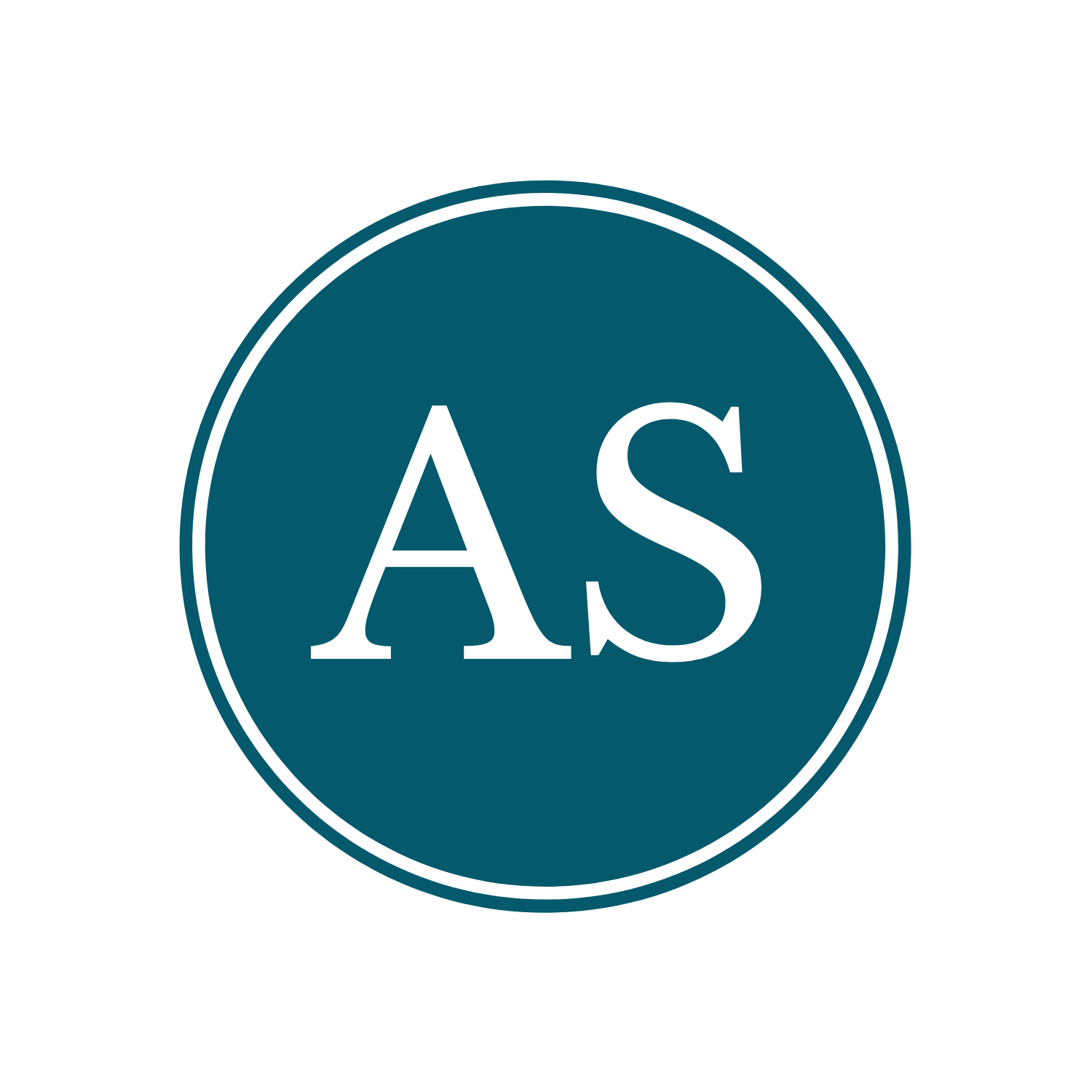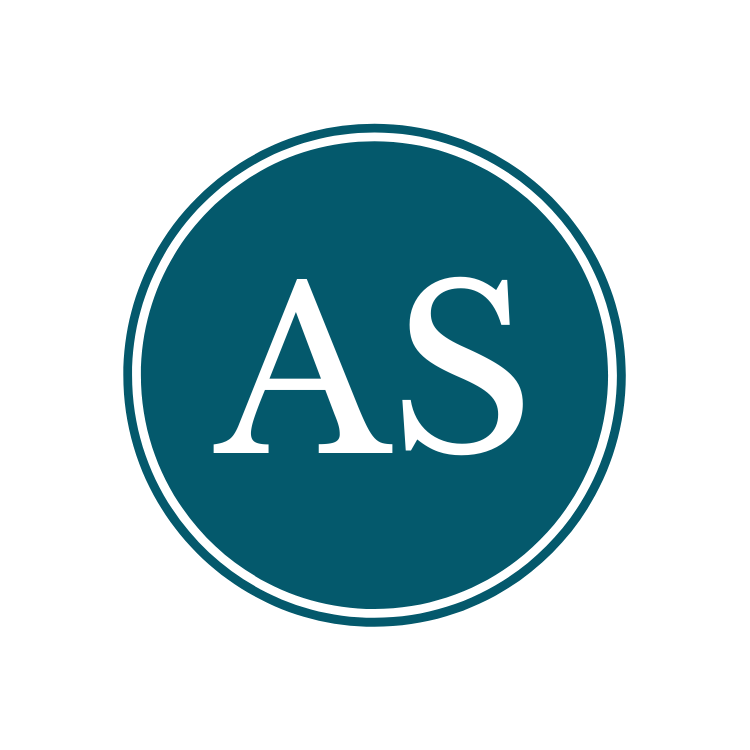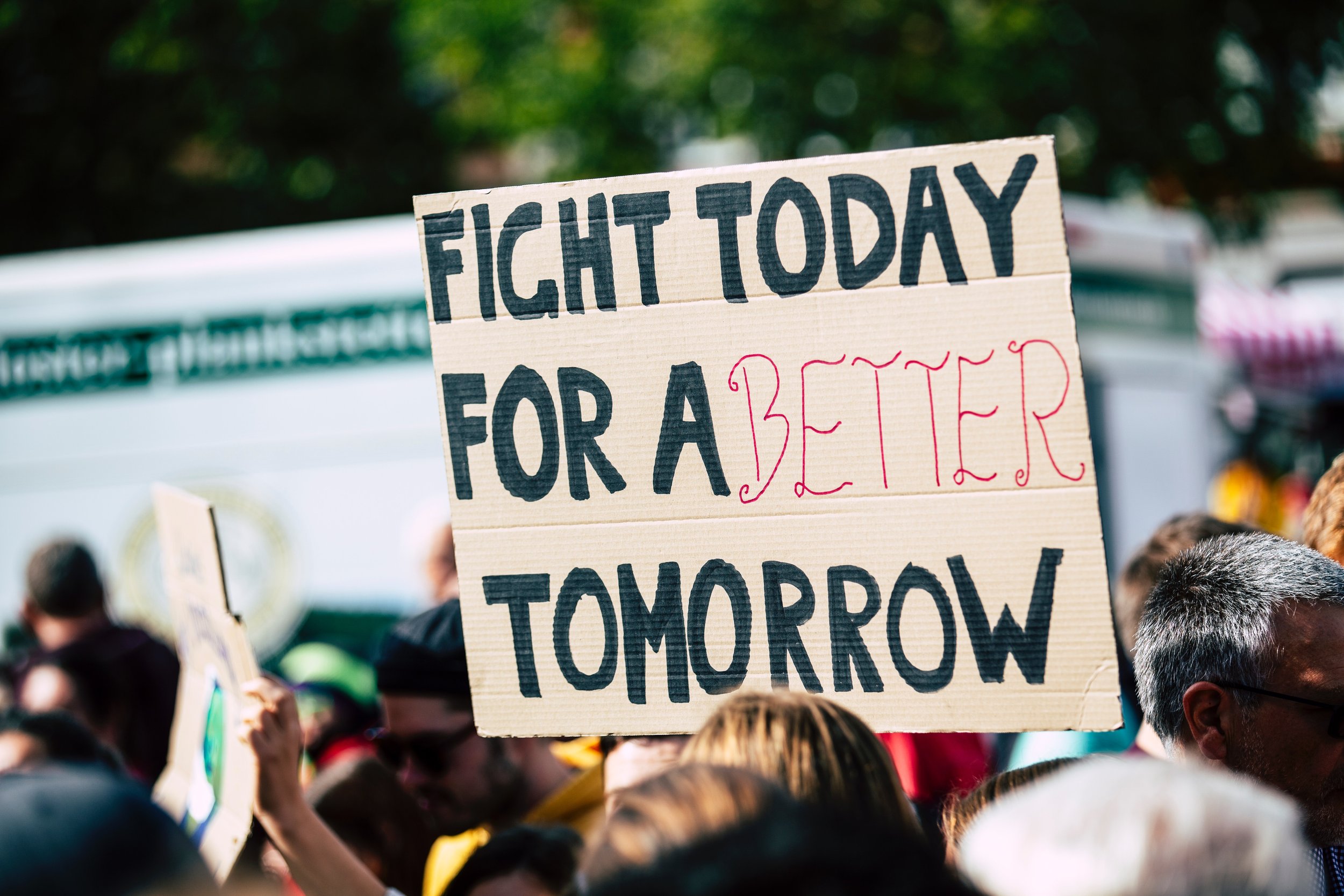What Does Evaluation Have to do with Social Justice, Part 1
A photo of a crowd with a cardboard sign that says "Fight Today for a Better Tomorrow"
Believe it or not, my journey to evaluation grew out of my background in youth work, community organizing, and advocacy. Back in the early 2000’s, I was on the ground, in the weeds, and at the grassroots running out of school programming and spending my free time at community organizing meetings. I definitely didn’t see myself becoming an administrator, academic, or “consulting specialist.” What fired me up was organizing protests and marches and teaching middle and high school students how to lobby their legislators. In fact, when I began on this path, I had lunch with a mentor whose first response after telling him about my research career dream was, “are you sure you could sit behind a computer all day?”
But as much as I loved the work, I was constantly frustrated by “the system.” I could feel it bearing down on me and blocking my ability to have the kind of impact I really hoped for. I remembered how my mother quit her teaching career after only a few years because the administrative confinements of the school district she worked for made it impossible to serve her students. I thought about how an organization I worked for was only able to offer my program because I, and several other staff members, worked as an AmeriCorps volunteers (i.e. unpaid staff members). And I was disillusioned by watching friends and colleagues bear the weight of working in underpaid, overworked nonprofit jobs because that was go-to path to having a career doing something they felt was truly meaningful.
Frustrated with feeling like a cog in the very systems I was trying to dismantle, I wanted to find a way to truly have an impact on the systems themselves - or at least figure out what role I could play. After witnessing the nonprofit industrial complex and inequitable education system in action, I wanted to address these issues systemically.
At first, I leaned into political advocacy and community organizing- for a while I even thought I might be a lobbyist. But at the very end of my graduate school career, I decided to take a class in program evaluation. It simply seemed like a useful thing to learn about and have some skills in. But the class blew my mind- and my conception of what “program evaluation” even was. Evaluation felt like a secret superpower nobody told the changemakers we had.
Now, I want to be clear: like just about everything else, the evaluation field is problematic. All the things most people associate with evaluation are unfortunately true: it can be a confusing administrative mess, it often ends up creating a lot of busywork that doesn’t necessarily have to do with much else, it can be attached to burdensome demands from funders and oversight authorities, and it can cost a lot of money. The field of evaluation is rooted in white supremacy, patriarchy, colonialism, and other problematic power dynamics.
But I saw an opportunity to use this secret evaluation power to challenge that power dynamic. Evaluation could be an opportunity to use tools of information access and knowledge generation to support community self-determination. Ever since, I’ve dedicated my career to this work.
A photo of several hands coming together in the center
Since embarking on this journey, I’ve learned from leaders, scholars, and activists in the evaluation community and beyond doing this work, using evaluation to support community self-determination and transformation, and having transformative impacts on the fields of evaluation and nonprofit work.
I have a lot of thoughts, feelings, and ideas about how to infuse my professional work with my personal values and the impact I want to have on the world. My work is wrapped up in efforts and movements related to decolonization, redistribution, mutual aid, radical generosity, and a fundamental belief that we have the power to shape the world that we wish existed. Somehow, I found the potential in evaluation beyond surveys and reports and with it my own place in the revolution.
Stay tuned for Parts 2-x for a more comprehensive list of resources, credits, thoughts, and tips on how this has taken shape in my work (and how you can apply it to yours).
Learn more:
If you’d like to share own story, have a conversation, exchange resources on these topics, or learn more about how you can apply these frameworks to your work, please reach out to me at alli@asevaluation.com or book a time on my calendar.
Check out the Evaluation Culture Workshop Series to learn more about how I (and how you can) do this.
Post Script:
I wrote the original draft of this blog post this summer. It’s a story I often talk about but wasn’t sure how to share formally- in some ways it feels contradictory and taps into my vulnerability. For one, I firmly believe that social justice movements should be lead by those most affected by oppressive systems, and especially not white folks. It’s something that stops me from being more bold in my own leadership. However, I also recognize the importance of white folks’ leadership in our own work and in our own communities, and in this spirit think it’s important to share our journeys, our learning, our process, and to live in our vulnerability.
Second, the perfectionist in me is afraid to share content without having every source fully reviewed, double checked, and credited. While I know I have a lot of expertise, I am perpetually learning and absorbing. It feels daunting to appropriately find and credit all the people, communities, and concepts that have impacted me. And with so much knowledge to explore, including the troves of knowledge and wisdom that go largely unacknowledged, this is a nearly impossible task.
Which leads to the third reason I’m sharing this now. One of the things I’ve committed to leaving behind in 2021 is perfectionism (or at least taking a few steps toward doing so). Recognizing that perfectionism is rooted in white supremacist and patriarchal structures, in commitment to this journey I’m sharing an imperfect, incomplete, and vulnerable story. I hope that sharing my story can support others on their own journeys.
For anyone who’s taken the time to read this, I sincerely thank you for witnessing my story, my journey, and my vulnerability.
If you’d like to share your story, have a conversation, exchange resources on these topics, or learn more about how you can apply these frameworks to your work, please reach out to me at alli@asevaluation.com or book a time on my calendar.



